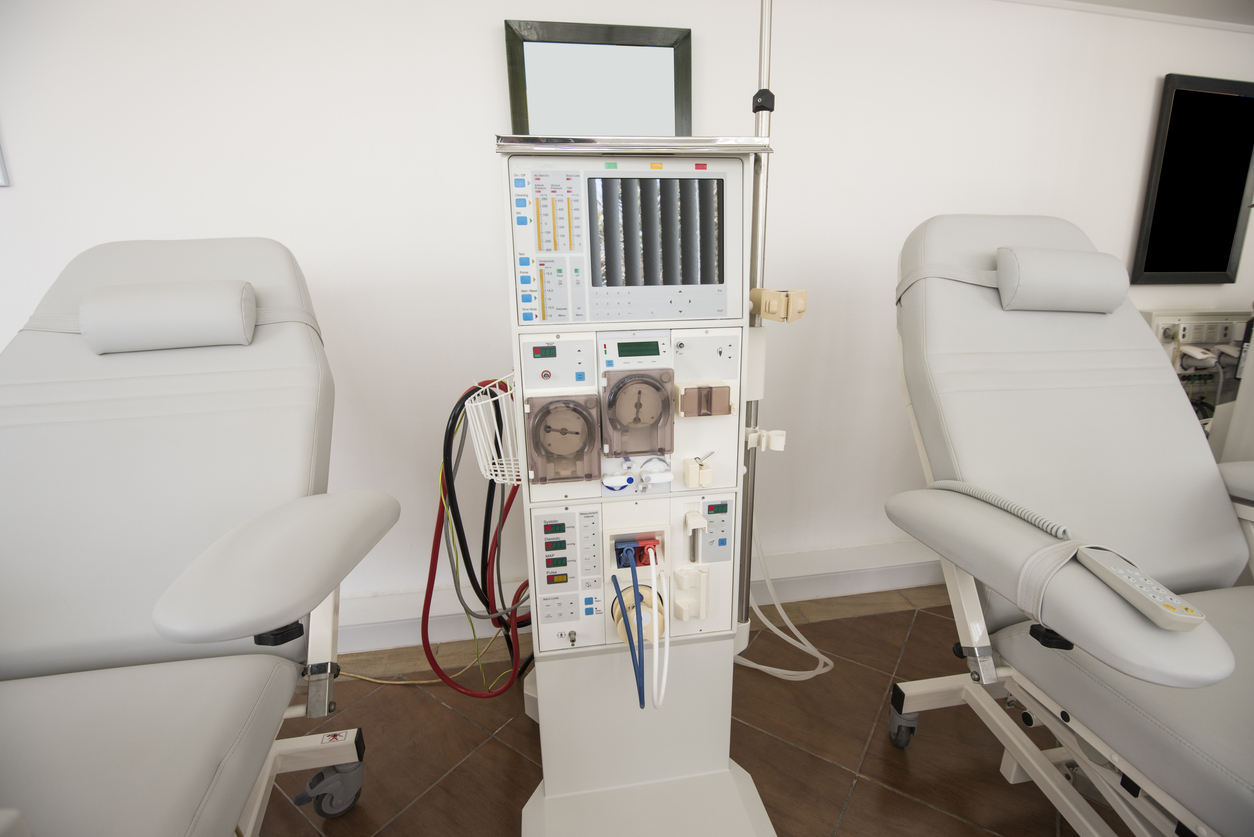Dialysis Patient Citizens News
DPC Urges Department of Insurance to Protect Dialysis Patient Access in Oregon
Ms. Laura Cali, Insurance Commissioner Department of Consumer & Business Services Insurance Division PO Box 14480 Salem, Oregon 97309-0405 Re: Discrimination against end-stage renal disease patients by Regence health plan Dear Commissioner Cali: With 28,000 dialysis patient members, Dialysis Patient Citizens (DPC) is the nation’s largest patient-led organization representing individuals with end-stage renal disease (ESRD). I am writing on behalf of Oregon’s 3,821 dialysis patients, asking that you ensure that they are treated equitably by the Regence health insurance plan. Regulatory filings by this issuer indicate that its [...]
DPC Calls on Regulators to Investigate Insurer’s Renal Care Coverage Limitations
Kidney advocates are reacting to an alarming trend in the commercial insurance industry: insurers are increasingly writing language into policy documents that attempt to exclude or limit coverage of renal care. DPC is alerting regulators at both the state and federal levels to the harm these limitations could have on patients and asking them to enforce the numerous laws that prohibit health plans from discriminating against people with ESRD. Federal law guarantees that ESRD patients may keep their private insurance coverage for up to 30 months before [...]
DPC, Kidney Patient, Testify at Hearing on Surprise Medical Bills
DPC Policy Director Jackson Williams and Pittsburgh kidney patient Janice Nathan were among witnesses at a hearing held by Pennsylvania’s insurance commissioner on “surprise medical bills.” These are bills received from physicians who are outside of an insurer’s provider network even though they work inside facilities that are in-network. Janice Nathan’s primary care doctor recommended that she receive a cardiac stress test. Ms. Nathan checked her insurer’s provider directory and found an in-network facility to get the test. But when she received a cardiologist’s bill for $325—much [...]
New ACO Model Focuses on ESRD Patient Care
The Centers for Medicare & Medicaid Services (CMS) has announced the participants for the Comprehensive ESRD Care (CEC) Model, a new accountable care organization (ACO) model designed specifically for ESRD patients. ACOs are groups of physicians and other health care providers who collectively take on responsibility for the quality and cost of care for a population of patients. In the CEC Model, dialysis facilities, nephrologists and other providers have formed ESRD Seamless Care Organizations (ESCOs) to coordinate care for ESRD beneficiaries. ESCOs will be financially accountable for quality [...]
DPC Assists Grassroots Efforts to Secure Level Medicaid Funding in Alabama
DPC has been hard at work on the state level fighting to ensure continued access to quality patient care, most recently in Alabama and North Carolina. In Alabama, patients fought to maintain Medicaid funding for outpatient dialysis, which the state was considering moving to local hospitals instead, in a potential effort to close the state budget shortfall. Patient advocates quickly took action and contacted their state legislators to encourage alternative revenue generating measures to close the budget gap as opposed to eliminating Medicaid funding. Thankfully, the state [...]
Joint Letter to Committees on Part B Premiums and Deductibles
Dear Chairman Hatch, Senator Wyden, Chairman Ryan, Congressman Levin, Chairman Upton & Congressman Pallone: The undersigned organizations share a commitment to advancing the health and economic security of older adults, people with disabilities, and their families. We are writing to urge you to advance a solution to mitigate projected increases to Medicare Part B premiums and the Part B deductible in 2016. According to the 2015 Medicare Trustees Report, Part B premiums will increase by 52%—up to $159.30 per month from $104.90—for 30% of beneficiaries. The trustees [...]
Re: Essential Health Benefits – 2017 Benchmark Plans
Hon. Kevin Counihan Center for Consumer and Information and Insurance Oversight Centers for Medicare and Medicaid Services Hubert H. Humphrey Building 200 Independence Ave, SW Washington, D.C. 20201 Re: Essential Health Benefits - 2017 Benchmark Plans Dear Deputy Director Counihan: Dialysis Patient Citizens, America’s largest patient-led organization representing dialysis patients, is comprised of more than 28,000 dialysis and pre-dialysis patients and their families. We seek to ensure the patient point of view is considered by policy makers. We are writing to comment on the Agency’s List of [...]
Letter to Oregon Insurance Commissioner Emphasizes Importance of Private Insurance
Regence and Moda, two private insurance plans in Oregon, recently made changes to their 2016 plans that would negatively affect ESRD patients. Specifically, after three months of coverage, any out-of-pocket payments patients make for dialysis treatment will no longer count towards their out-of-pocket maximums. This appears to be an effort to pressure dialysis patients to drop their private coverage and enroll in Medicare. DPC’s letter to the Oregon Insurance Commissioner calls attention to this discriminatory move. Medicare plans do not include an out-of-pocket maximum amount, while most [...]
Representative Pitts visits Reading Dialysis Center
During the August recess, Congressman Joe Pitts took the opportunity to engage with dialysis patients in his home district. He recently visited the Reading Dialysis Center in Reading, PA where he received a tour of the facility and met with dialysis nurses and staff. As Chairman of the Energy and Commerce Health Subcommittee, he is an influential decision maker when it comes to kidney care issues. He spoke to the dialysis staff on a variety of health proposals currently in Congress including the 21st century Cures initiative. We [...]
Patients Work on Advocacy at Home During Congressional Recess
While Congress was in recess during the month of August, DPC Patient Ambassadors used this opportunity to engage their legislators at home. Patient Ambassadors attended meetings with congressional staff, hosted facility tours and wrote letters to the editor in support of The Chronic Kidney Disease Improvement in Research and Treatment Act (H.R. 1130, S. 598). Facility tours and meetings took place all across the country. Specifically, Bob L. from Oregon, Kathy S. from Ohio, Jim M. from Indiana and Arthur G. from Pennsylvania hosted their legislators at [...]
DPC Comments on 2016 Prospective Payment System and QIP
DPC recently sent a comment letter responding to the proposed payment rule for CMS’s Medicare End Stage Renal Disease program. Using responses from our 2015 Patient Survey, our suggestions focus on how CMS can improve on the key issues of payment and quality for patients. On the payment side, we urge CMS to revise its patient-level payment system by focusing on individuals’ experiences, instead of drawing conclusions based off of large amounts of data. Better support of rural facilities and home dialysis is also important, providing more [...]
RE: CMS-1631-P: Physician Fee Schedule
August 25, 2015 Andrew Slavitt, Acting Administrator Centers for Medicare and Medicaid Services Department of Health and Human Services Hubert H. Humphrey Building 200 Independence Avenue SW Washington, D.C. 20201 Dear Mr. Slavitt, Dialysis Patient Citizens (DPC) appreciates the opportunity to provide the Centers for Medicare and Medicaid Services (CMS) with comments on the proposed payment rule for the Medicare End Stage Renal Disease (ESRD) program. As America’s largest patient-led organization representing dialysis patients, DPC’s membership consists of more than 28,000 dialysis and pre-dialysis patients and their [...]
JAMA Study Examines Obstacles Preventing Kidney Transplants
It is well known that the best treatment for end-stage renal disease patients is a kidney transplant. While there are many health factors that affect a patients’ ability to receive a transplant, a recent study found that only 28 percent of adult patients beginning dialysis were even referred for kidney transplant evaluations. The study, published in the Journal of American Medical Association, examined 15,000 patients within Georgia’s three transplant centers. Referral rates varied from 0% to 75% in some dialysis facilities. Researchers found that facilities with the lowest [...]
Report Finds Star Rating System Does Not Follow Federal Guidelines
The Medicare five-star rating system, maintained by the Center for Medicaid and Medicare Services’ (CMS), has recently come under scrutiny by the Center for Regulatory Effectiveness (CRE). In a letter from last month, CRE officials report that multiple entities have contacted them about the system possibly violating federal regulations. According to the letter, data from the rating system helps in determining rebates, eligibility and bonuses for patients. Current law requires this information be posted on a federal register to receive comments from stakeholders. CRE officials found CMS has instead [...]
Biosimilar Medication Topic of House Letter to CMS
When the FDA approves a generic drug, it’s based on the chemicals contained in the original brand medication. Congress recently enacted a similar process for the approval of “biosimilars” based on the original biologic medication. The main difference is that the “biosimilar” is approved based on its development process. Biosimilars have the potential to be a cheaper alternative for expensive biologic medications such as Epogen, a drug used for anemia management. A letter sent from the House of Representatives to the Centers for Medicaid and Medicare Services (CMS) calls attention [...]
Congress Adopts Key Element of Kidney Community Agenda: Clinics May Soon Dialyze Acute Kidney Injury Patients
In passing the President's trade legislation last month, Congress enacted a longtime priority of kidney care advocates: permitting patients with acute kidney injury (AKI) to be treated in dialysis clinics. Under current law, AKI patients may only receive dialysis at hospitals, which is more costly to the Medicare program and less convenient for patients. Congress took this measure from the Chronic Kidney Disease Improvement in Research and Treatment Act, the comprehensive kidney bill that DPC has supported, so that the Medicare savings could pay for assistance to displaced [...]
DPC Submits Ideas for Improving ESRD Care to Special Senate Task Force
Earlier this spring, the U.S. Senate Finance Committee invited stakeholders to submit ideas to improve care for Medicare beneficiaries with chronic diseases. DPC submitted its comments on June 22 with a focus on how end-stage renal disease (ESRD) patients could benefit from increased care coordination among providers. The Senate Finance Committee oversees the Medicare program and both the current Chairman Orrin Hatch (R-UT) and top Democrat Ron Wyden (D-OR) have prioritized improving patient outcomes while lowering costs. They appointed a bipartisan task force to move forward with the [...]
DPC Writes to Montana state official, in support of a proposed rule allowing Medigap open enrollment for Medicare patients under the age of 65 with disabilities or ESRD
Brett O’Neill, Attorney Office of the Commissioner of Securities and Insurance Montana State Auditor 840 Helena Ave. Helena, MT 59601 RE: Medicare Supplements – ARM 6.6.507B, .507C, .507E, .511, .511A Dear Mr. O’Neill: As the nation’s largest patient-led organization representing dialysis patients, Dialysis Patient Citizens (DPC) works to improve the quality of life for all dialysis patients through education and advocacy. On behalf of our membership, and particularly on behalf of the over 750 dialysis patients in Montana, we are writing in support of the proposed rule [...]
DPC Shares Patient Perspective at Congressional Briefing
Kidney Care Partners, in coordination with the Congressional Kidney Caucus, recently hosted a briefing on Capitol Hill to stress the importance of ensuring quality kidney care now and in the future. The briefing featured opening remarks by Kidney Caucus co-chairs, Rep. Tom Marino (R-PA) and Rep. Jim McDermott (D-WA), who both emphasized the need for increased awareness and research for kidney care issues. Nancy Scott, DPC Education Center Board President, was on hand to provide the patient's perspective to the attendees. Nancy lives by the [...]


